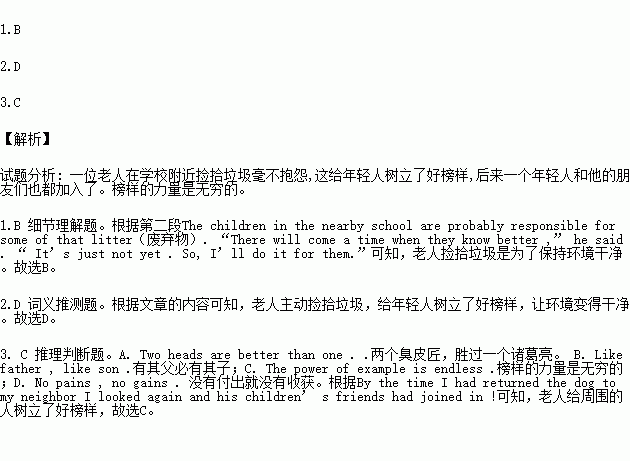题目内容
An old gentleman who lives a few doors away from me can always be seen with a bag. He goes out by himself and picks up plastic bottles, plastic bags and pieces of paper everywhere. He does it all carefully and never complains.
The children in the nearby school are probably responsible for some of that litter(废弃物). “There will come a time when they know better ,” he said . “ It’s just not yet . So, I’ll do it for them.”
Well, this morning I was out walking my neighbor’s dog when I saw another neighbor, a much younger man , out doing the same thing ! He had his two little sons with him and they were having good fun trying to pick up the litter.
When I commented(评论)on what a good job he was doing, he said , “ Well , an older fellow in our street does this . And my friend and I thought it wasn’t fair that he had to do it all the time , so now we take turns .”
Not only was he taking a turn , not only did he have a friend join in as well , but he was passing on the lesson to the next generation(代)!
By the time I had returned the dog to my neighbor I looked again and his children’ s friends had joined in !
This man was teaching a whole group of young children to keep their own street sanitary. An older man had set an example for him and now he was passing it on — the next generation is doing what he did and the generation to come after that !
1.The old gentleman picks up the litter _______.
A. to make money.
B. to keep the environment clean.
C. to set an example to children.
D. to help the cleaners.
2.The underlined word “ sanitary ” in the last paragraph can be replaced by “_______”
A. polluted B. crowded
C. straight D. clean
3.What can we learn from the text ?
A. Two heads are better than one.
B. Like father , like son .
C. The power of example is endless.
D. No pains , no gains .

